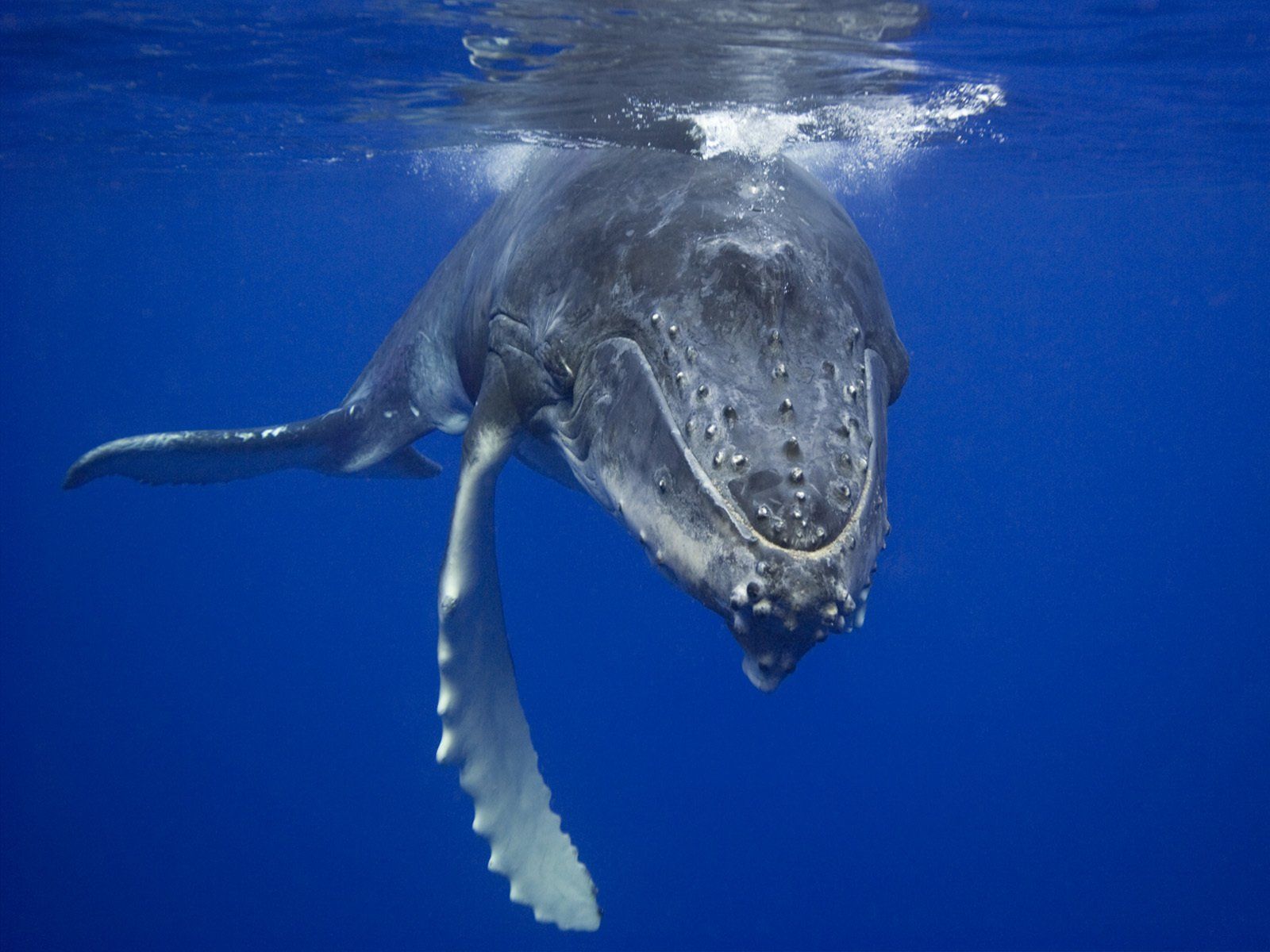Why Do Whales Sing?
Scientists have long been puzzled over why whales communicate through song - from the Arctic bowhead to the iconic male humpback whale song on the tropical breeding grounds, these complex vocalisations may have several functions but we are only starting to understand what these are.
Birds broadcast their social hierarchy among song-sharing populations by allowing the dominant bird to pick up the patterns. However, how and why whales pass along song fragments across hundreds of miles, and to thousands of animals is far more mysterious. One of the biggest questions in cetacean (whale, dolphin and porpoise) acoustics is why do whales sing at all?
Whales and dolphins produce vocalisations, but toothed whales e.g. dolphins produce clicks and whistles. In comparison, baleen whales produce complex sounds with repeated phrases or patterns, known as song.
With regards to humpback whales, only the males sing so the hypothesis is they are trying to attract females. These males may change their tune when another male is nearby - perhaps to assess a rival's size and fitness. Humpback whale song appears to be far more complex than other whale species song, but why that is the case is little understood, although has been attributed to " runaway selection
". Humpbacks that were early to the breeding grounds and who had more complex songs were much more successful at mating than their counterparts, and therefore gained a substantial evolutionary advantage over whales with simpler vocalisations. This has led to some very large and very boisterous animals.
ONE HUMPBACK WHALE recorded in the Caribbean by Paul Knapp Jr. (c) Compass Recordings, Instagram.com/Listeningtowhales/ Listeningtowhales.com Graphics by Mark Fischer (c) Aguasonic Acoustics, https://Aguasonic.com/ This is the first minute of a great 25 min. recording.
Recent research has shown that humpback whales change their song through time, constantly evolving their form of communication. Another recent study published in the journal Royal Society Open Science, tracked humpback whales along the east and west coasts of Africa, comparing songs sung by those of Gabon to those near Madagascar. The findings indicated that the two populations did indeed interact, noting overlap in their vocalisations.
"Male humpback whales within a population tend to sing the same song type, but it is continuously changing and evolving over time" said lead author of the study Melinda Rekdahl.
"It is thought to be one of the best examples of cultural evolution in the animal kingdom" - she concluded.
Another study published in Proceedings of the Royal Society of Biological Sciences,
lead by Ph.D. student Jenny Allen, found that once a humpback whales song reached a certain level of complexity, the whale dropped the tune altogether and picked up a new, simpler one. Assuming that male humpback songs are to attract females, it might be that they are dropping the complex songs to "spice things up a bit" - if 15,000 whales are singing the same songs, perhaps what makes them stand out is something different. However, because these songs are so complex they may be difficult to remember so they go with a simpler new song to memorise and build on its complexity over time.
"Humpback songs have a lot of repeating patterns which may make them easier to memorise, similar to pop songs based on the same four chords"- says Allen.
© Ocean Research & Conservation Ireland (O.R.C.Ireland) and www.orcireland.ie , est. 2017. If you like our blogs on the latest news in marine science and would like to support our work, visit www.orcireland.ie to become a member, to volunteer or to make a donation today. This article has been composed based on credible sources.
References
:
Allen J, Garland E, Dunlop R and Noad M (2019) Network analysis reveals underlying syntactic features in a vocally learnt mammalian display, humpback whale song, Proceedings of the Royal Society B: Biological Sciences , 286 :1917,
Rekdahl, M.L., Garland, E.C., Carvajal, G.A., King, C.D., Collins, T., Razafindrakoto, Y., Rosenbaum, H., (2018) Culturally transmitted song exchange between humpback whales ( Megaptera novaeangliae ) in the southeast Atlantic and southwest Indian Ocean basinsR. Soc. open sci.5172305 http://doi.org/10.1098/rsos.172305SHARE THIS ARTICLE














